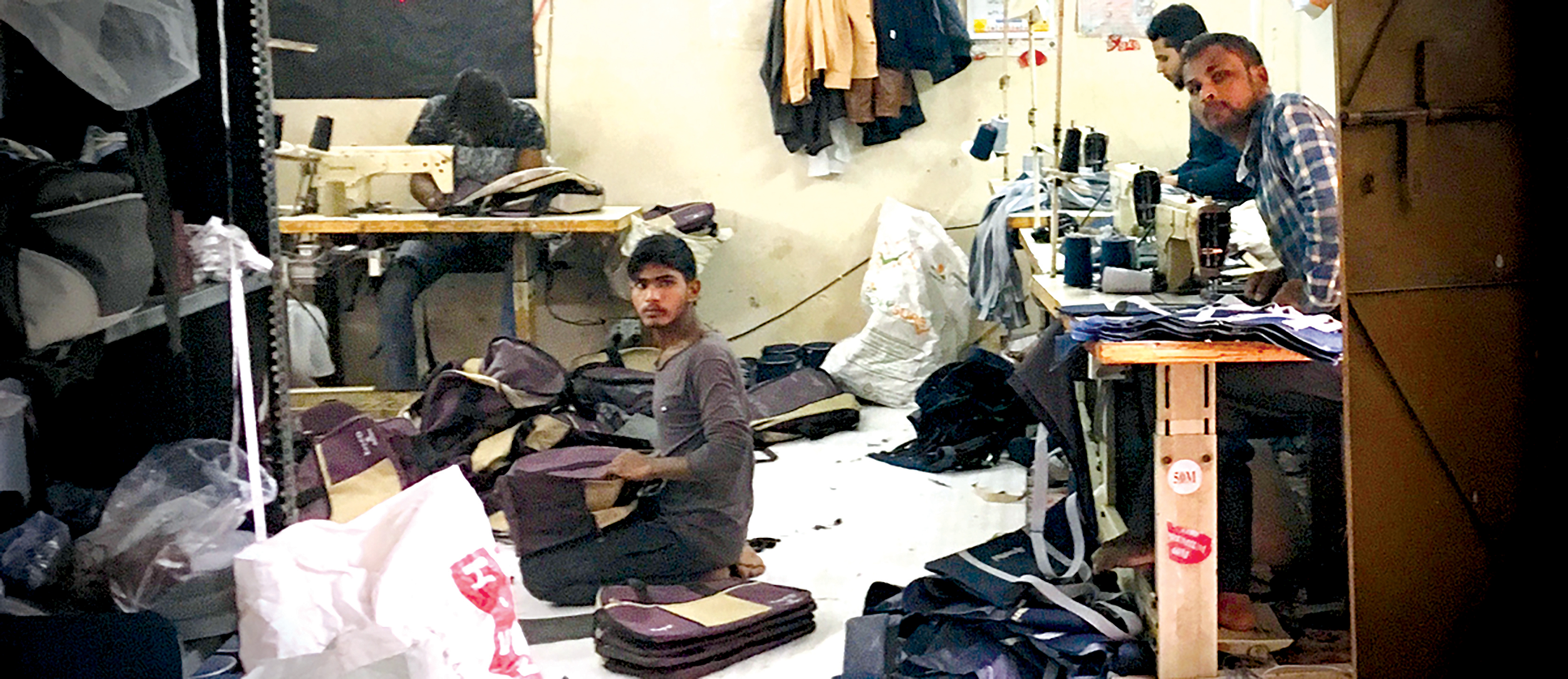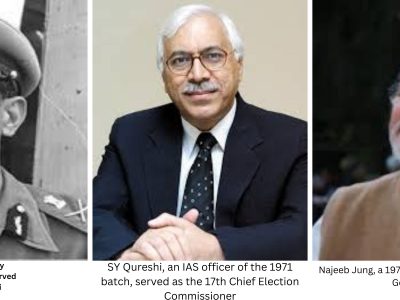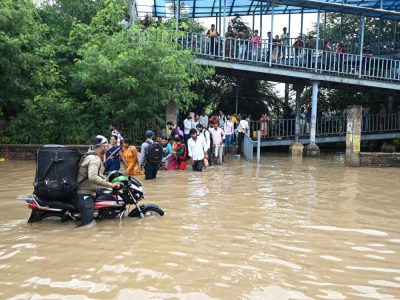After a fire in an illegal Delhi factory kills 43 people, including five children, migrant workers struggle to carry on with their precarious lives but barely earn enough to eat’
On Monday, TV crews jostled for space under the archway that leads to Anaj Mandi, a few hundred meters from the congested Sadar Bazaar, the largest wholesale market in Old Delhi.
The archway towers over a narrow, dark lane crammed with a row of buildings along each side. The district magistrate’s office had set up a disaster management desk at the entrance, manned by three policemen. The police had placed metal barricades and yellow and white barrier tape to restrict movement, but anyone who lifted the tape could pass into the lane.
In the lane, a crowd had gathered outside a building with pink walls covered in soot. A fire had started at dawn the previous day here, engulfing over a hundred workers who slept inside. Forty three workers, including children, asphyxiated to death, while 60 were seriously injured in the most devastating fire in Delhi in a decade. The five-storey building housed a factory which government officials have said lacked a manufacturing permit as well as fire safety certification. It was, in other words, one of the thousands of illegal factories operating in Delhi.
On Monday morning, a tall, balding man in a sweater and jeans with bags of sleeplessness under his eyes, was explaining the area’s demography to a representative from a local Islamic seminary. “The Biharis gather together,” said the man, who lives in the neighbourhood. “As soon as one of them finds a toehold, they bring and settle their whole village here.”
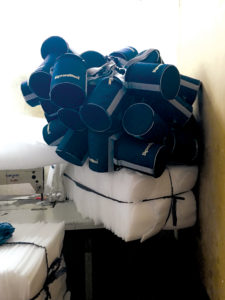
‘No money for a meal’
As other residents and owners of manufacturing units nodded in agreement, a few young men stood huddled in groups of two or four a little distance away in the lane, watching from the shadows.
Prakash Das was among them. He and Biju Mandal, 28, watched the crowd with glazed eyes, looking dazed and tired. They both worked in a bag manufacturing unit next to the charred building. Neither of them had eaten since Saturday night, going hungry for 42 hours. “Our weekly payment of Rs 1,500 for the past week was due on Sunday. But after the fire broke out, our unit’s owner too left,” Prakash, who looked small for his 33 years, explained. “We have no money left for a meal.”
Das spoke hesitantly, frequently glancing around for any employer or resident overhearing him. Tangled electrical wires drooped over where he stood in a side lane. Large rats scurried and fed on garbage in the corner.
Walking away from Anaj Mandi, Das remarked, “Three months back, one of the residents had an argument with one of the Bihari migrant workers and thrashed him,” he said. “Now, if one of them were to plant a slap on my face, would I be able to do anything?”
Like several of the workers who died Sunday morning, Das came to Delhi as a 14-year old from Wajidpur in North Bihar’s Darbhanga district, around 80 km from the border with Nepal. He has spent nearly all his life inside the dimly-lit and poorly ventilated small factories and workshops operating in this lane. And like the workers caught in the fire, he had stitched bags for 10 years at the burnt factory.
He was paid paid Rs 30 for every bag he stitched. He could stitch 50 bags per day, he said, but often the orders totaled just 50 bags a week. He earned Rs 6,000 a month on average. He saved on rent by living in the same building, but it had become overcrowded with nearly 30 workers on each floor. So, Das and his brother moved to a new building in May. They had also pooled their funds to buy an electric sewing machine. But now, he said, after spending Rs 500 weekly on rent and Rs 100 on two meals a day – he skipped breakfast every day to save money – he barely saved anything.
In the now charred factory, he and his fellow workers had, over the past couple of years, been stitching pithoo bags, or backpacks, for a number of major corporate brands and government contractors. “We stitched bags Airtel and Vodafone provide to their staff and Zomato to their delivery boys,” he recounted. “We stitched the bags that governments and companies give out at public functions. Currently, I was stitching a large order of bags on which we put the label ‘Jharkhand Government’. Before that, we made bags for Uttar Pradesh government and bags with Jayalalithaa labels, and tiffin bags for dinnerware companies.”
‘The air feels like poison’
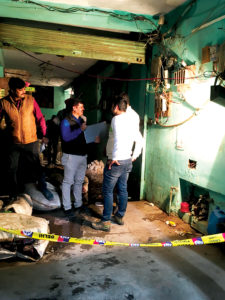
Irrespective of the volume of orders and how much work there was, Das said, the workers
were required to be at the machines from 10 in the morning until one at night, except on Sundays.
Several children worked alongside the men. “The owner would usually place a child after every two machines,” Das explained. “I feel the worst when I think about all the children.” Das himself started working as a tailor, in similar factory units in nearby Paharganj, when he was just 14.
He said the workers, including the children, frequently hurt themselves at work. He showed his left thumbnail, which was pierced by a machine needle at the top. “When the needle goes through, the pain is so intense it makes one feel dizzy and throw up at one’s workstation,” he recalled.
The children learned to make bags as apprentices, hunched over sewing machines for nine to 12 months. In this period, the owners deducted Rs 5 from the payment for every bag a child stitched as rent for staying the night in the building. The adults who had worked many years did not have to pay this amount, Das pointed out. After midnight, the workers moved their sewing machines to one side and spread the polyester material of the backpacks to sleep on. As the building had got more populated, the owner, Rehan, who has since been arrested, had built two toilets on each of the five floors.
A caretaker locked the workers in the building at night, blocking the staircase that led to the floors above from midnight until 6 am. “This is a residential area, so they lock us in because the residents believe it is safer if migrants like us from Bihar and Uttar Pradesh are locked up,” explained Das. “In case of an emergency, or if a worker fell ill at night, someone had to call the caretaker to come with the key and let us out.”
On Sunday morning too when the fire broke out, the workers were locked in and had no way to leave, Das and other workers said. “The caretaker had locked the ground floor and the door on the top floor. A window on the top floor had to be cut open for a few of the people trapped inside to be able to escape,” said Abdul Kalam, a worker from Malmal village in Bihar’s Madhubani who stitches bags in another factory in the lane.
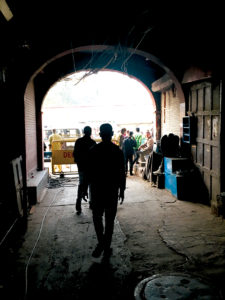
Das said he had slept barely four hours after finishing work late on Saturday night when his phone started ringing incessantly. “Our caretaker also locks us inside the building we live in,” he said. “When someone finally opened the door to our building, the local residents were screaming at us to stay away till the police reached.”
Das said he looked out his window in the morning light and counted 56 workers being carried into ambulances, several of whom were friends and people he had worked with. After the factory’s locks were opened, a few men came out, in their underclothes. Das gave his clothes and shoes to some of them. “Twelve people I worked with for years died. There are at least 12 others whom I have not been able to contact so far.”
He had been having panic attacks since the tragedy, Das said. His heartbeat raced each time he recounted the events, and every time the owner of some manufacturing unit in the area called out to him. He wanted to go back home to him family in Darbhanga to recover from the trauma but the journey would cost at least Rs 1,000 and he didn’t have enough money to even pay for his next meal.
“I fall ill when I am in Delhi, I do not fall ill as much in any other place,” said Das, waiting at a bus stop at Model Basti nearby, watching cars and buses go by. “Here, there is suffocation, and the air feels like poison.”
Unsure what he would do with the rest of his day, Das waited in a park. Then, around 4 pm, his brother Pramod, who worked with him, called to say their employer had paid Rs 1,500, his wages for the previous week. As he spoke on the phone, a look of relief came over Das. He had changed his mind, he said, he would work for two more weeks and save some of the money to pay for his train home.
That night, the factory owner asked for all electric sewing machines to be shifted to a building in Model Basti. “Overnight, Anaj Mandi was emptied of every sewing machine,” Das said the next afternoon, as he packed his few belongings in a green backpack.
Das made his way out of Anaj Mandi, walking past Filmistan, a decrepit cinema hall, turning left on a road adjoining Anaj Mandi. At the end of the road, he turned into a narrow lane and started climbing a dark, narrow staircase to the fourth floor of a building. On each floor, teenaged boys and young men sat behind electric sewing machines, stitching backpacks, laptop bags, and lunchbox bags.
Das placed his backpack in a room on the fourth floor. Grey backpacks and cloth lay strewn all over the floor, and five young men sat behind electric sewing machines. “Nuria, my oldest friend in this market, has found me a sewing machine,” said Das.
‘They work like cattle’
Back in Anaj Mandi, the owners of a few factories and workshops confirmed they received orders to make bags and backpacks or stitch labels on them for big corporations as well as government agencies, but said there were no formal contracts with the corporates or state entities.
Amir Iqbal, a young manufacturer, explained how it all works. “A large company such as Airtel or Vodafone or Reliance or the Karnataka government gives an order for bags for a promotional event such as a marathon, or for their employees to wear to an office in Okhla or Gurgaon. They give the order to, say, a firm in Regarpura in Karol Bagh which gives the order to a businessman in Manakpura and Shidipura in Old Delhi in our area,” Iqbal said.
He added: “If the order comes to a businessman in Shidipura, they collect information from 10 manufacturers like us on WhatsApp about how much we would charge, what margin we would ask for. We compete and sometimes we divide the orders among ourselves.”
Iqbal’s firm usually makes a profit of Rs 50-60 on a large backpack, the kind used by the delivery agents of online retailers. “Or they could give the order to someone in Wazirabad, Seelampur, Nabi Kareem, another informal manufacturing hub area in Delhi,” Iqbal said. “In that case it does not come to us.”
“Chain pe chain hai. It is multilayered production, and we are level zero. Then, we give the work to labourers who come here from 1,500 km away for their livelihood,” said Faizan, a businessman in Anaj Mandi. He added: “Have you heard of kolhu ka bail, cattle with blinders? The labourers are like that, they often do not know who is making them go in circles, and labour on.”
(Some names have been changed to protect identities)
www.newluandry.com

